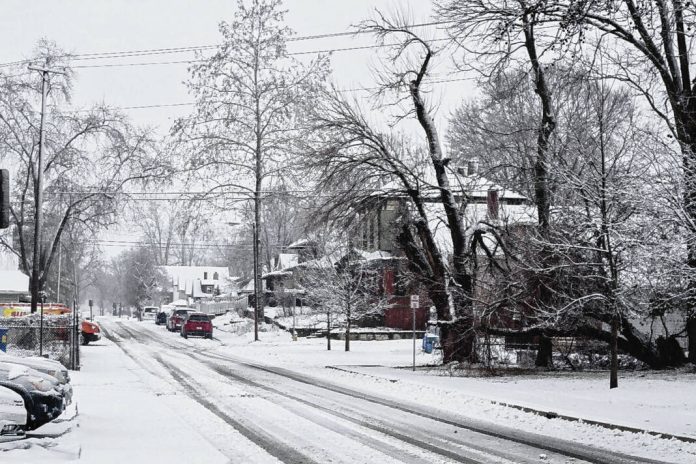With winter weather and extremely cold temperatures on the way, local utilities are offering safety and energy-saving tips for customers.
To avoid frozen pipes in the upcoming cold snap, Indiana American Water offers the following suggestions:
- Search your house for uninsulated pipes. Consider wrapping pipes with foam insulation or electric heating tape but follow manufacturer’s instructions carefully to avoid a fire hazard.
- Check to make sure your garage door and crawl space doors/vents are closed.
- Leave cabinet doors open in kitchen and bathroom areas to allow warm air to circulate and consider letting a faucet drip to keep water moving through the pipes.
- Seal cracks and holes in outside walls and foundations with caulking, especially where cables or phone lines enter the house, to keep cold air away from pipes.
- Make certain the water to your hose bibs is shut off inside your house (via a turnoff valve), the lines are drained, and the hose is disconnected from the spigot.
- Drain and shut off entirely the water to any unoccupied residence such as a summer or vacation home. A loss of power during a winter storm could cause pipes to freeze.
- Set the thermostat at no lower than 55 degrees if you’re going out of town.
- Make sure you know where your main water shut-off valve is in case you need to shut your water off in an emergency.
- Consider wrapping your water heater in an insulation blanket. While not really a danger for freezing, this can lower your heating bills.
CenterPoint Energy offered these energy-saving tips to help customers save on their bills:
- Make sure your heating system is operating safely and efficiently. Both an annual inspection and tune-up by a qualified technician are recommended.
- Change or clean your furnace filter regularly. This helps maximize your furnace’s efficiency and life.
- Turn down your thermostat. By lowering your thermostat by 7 to 10 degrees at night, or when you’re away for at least eight hours, you can potentially save 10% on your heating costs.
- Keep warm air in and cold air out of your home. Use caulk or weather-stripping to seal leaks around doors, windows and other openings such as pipes or ducts. You can also roll up towels and push them against the bottom of the door’s interior to help prevent heat loss. Close fireplace dampers when not in use, so you don’t lose heat.
- Close window coverings and blinds. This will help insulate against the cold air outside.
- Circulate warm air with your ceiling fans. Set your ceiling fans to turn clockwise slowly to move warm air from the ceiling to your living levels.





